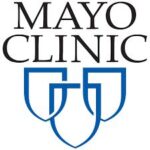One of my major career goals is to understand the interplay between immunity and neurobiology. My hypothesis is that factors that shape peripheral immunity and microglial reactivity impact neuroinflammation and long-term cognitive impairment as occurs in Alzheimer’s disease (AD). This is especially important since many AD genes are known or suggested to regulate immunity. My graduate training provided me with a strong background in peripheral immunity and I gained expertise in numerous assays (ELISAs, in vitro culture, flow cytometry, etc.) and generating animal model systems. During my immunology postdoctoral work I integrated immunology with CNS biology by studying immune infiltration and interactions during viral meningitis while expanding my skill set to include CNS infiltrate isolation, bone marrow chimeras, and in vivo 2 photon imaging. Since arriving at Mayo Clinic, I have focused on studies related to aspects of AD pathogenesis and acquired additional expertise in amyloid and tau biology.
This training uniquely positions me to function as a highly trained neuroimmunologist who can effectively determine the impact of APOE and peripheral inflammation on CNS responses to amyloid driven pathology during inflammatory conditions. My future goals are to determine how peripheral immunity and immune challenge alters CNS biology and the impact of different apolipoprotein (APOE) isoforms on these parameters in AD pathogenesis models during conditions of systemic inflammation (e.g. inflammation induced by acute challenge or aging). Additionally, single cell RNA seq technologies will be utilized to determine if APOE isoforms are correlated with significant alterations in peripheral human immune subsets/activation status.


